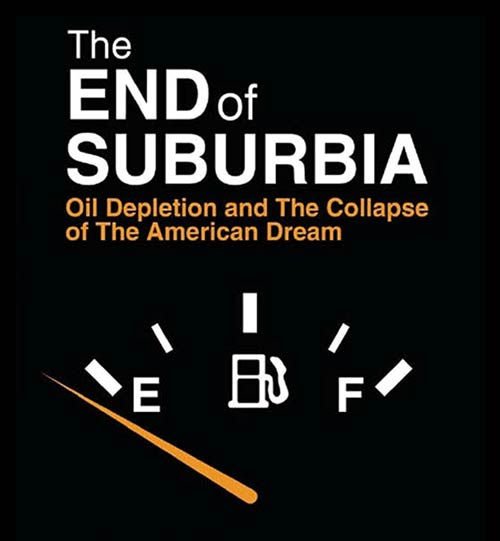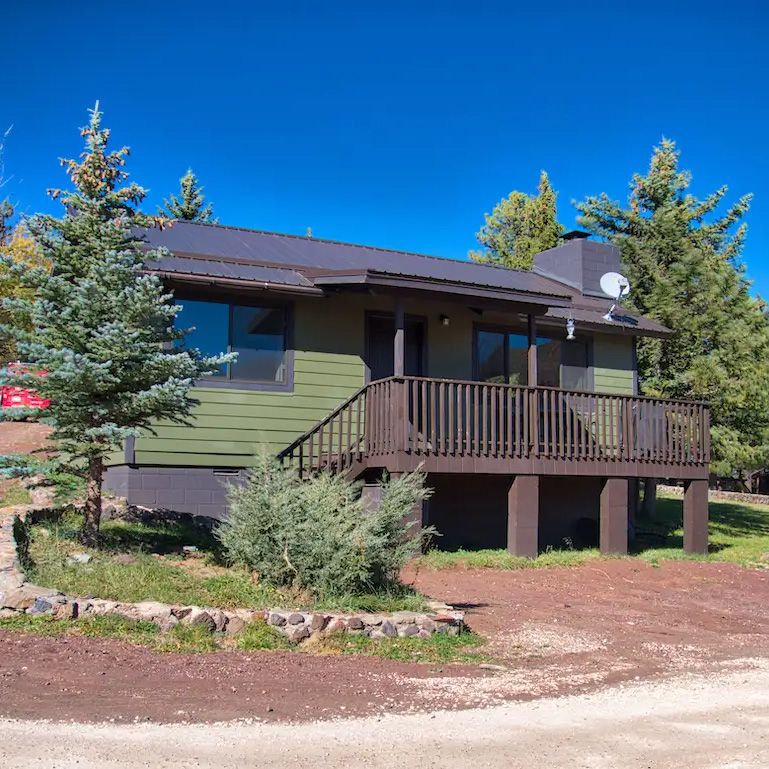Rising Gas Prices and the Future of Phoenix

[image from a documentary entitled, "The End of Suburbia"]
Recently I've been thinking a lot about the rise of oil/gas prices here in the US and wondering what affect it will have on us long-term. I (like many others) are convinced that high gas prices aren't going away anytime soon. Our economy is not so good at going backwards when it comes to pricing. We will inevitably (and it is scary that this is so) adjust to the cost of $4/gallon gas and forget that we once complained that gas was $2/gallon or then $3/gallon.
While this may be the case, high gas prices will certainly affect the future of the United States of America. We are already adjusting and beginning to imagine life beyond the automobile, or least to life with less automobile. We are driving less, using public transportation more, and inventing new words like "staycation. I personally am excited about the renewed value many are putting on riding a bike and focusing more on local consumption. But despite these new and creative ways we are getting by as Americans, we are still doing it with a sense of hostility toward high gas prices. In other words, our negative postures toward these news ways of life imply that if and when gas prices roll back we'll return to our gas-guzzling car-loving ways. The implication is that we'll sell our new Prius for that SUV, allow our bicycles to grow cobwebs and dust once again, and return to our excessive carbon-footprint ways.
I want to suggest we take a different view to all of this. Sure the pain of $70 tanks of gas leave us wondering how we'll stretch our paychecks to survive and we get less product for more money all the way around (high oil prices affect everything from food costs to electricity costs). But maybe this is the best thing that could happen to our future as a people. Maybe this pain we currently feel will finally force us to reimagine what it means to be an American. Possibly we will finally have the creative courage to look at other ways of living – one that are more responsible, other-focused,and ecologically-friendly. I sure hope it will.
As I have been imaging the affects that this gas crisis might have on the US, I can't help but begin by imaging what a new Phoenix might look like as a result of raising gas prices. Here are some initial thoughts:
– might residential development in Phoenix look more urban as opposed to the typical Phoenix suburbs. Will this finally force us to value high density residential living and to see it's value as sustainable development in contrast to suburban development?
– will we finally take public transportation seriously? I am wondering how many of the numerous people who've told me that, "the Phoenix light rail project is the biggest wste of money" might be rethinking that perspective.
– might we move from automobile-driven development (high parking space per capita) to community-driven or sustainability-driven development.?
– we will finally take our existing urban spaces seriously and attempt to make up for the decades and decades we've neglected them? Might new urban spaces emerge throughout the valley?
– will this all lead to the rise of an "ethos of the other" for those who call Phoenix home? In other words, will we discover what it means to deeply share life and city with those our live on our streets? Will we remember how to be neighborly?
– will we through all of this discover a new commonality as Phoenicians that bind us together into a city not of buildings, infastructure, and municipalities, but a city of people sharing a common identity of place, story, and common dreams.
I for one, sure hope so.
BTW: I wonder how the crash of the housing market will play into all of this as well
Some Links:
"Downtown Phoenix sees benefits from the economic slump" from ABC15
"Is America's suburban dream collapsing into a nightmare?" from cnn.com
http://www.endofsuburbia.com/





